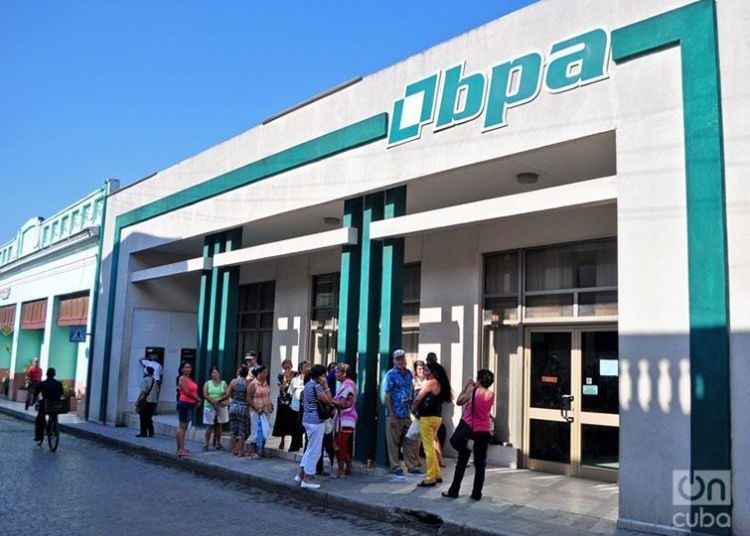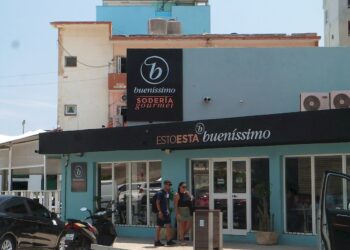The main Cuban banks―Metropolitano, Popular de Ahorro and Crédito y Comercio (Bandec)―this Monday started offering individuals the service of opening accounts in foreign currencies, as part of the new economic measures announced by the island’s government to boost its economy.
The banking entities will issue debit cards that will allow their users to import non-commercial products and buy from stores in the retail network where the use of cash will not be allowed, according to the Cuban News Agency (ACN).
To open the new accounts, individuals must only present their identity card at the commercial offices of one of the mentioned banks. After that operation, the users in Havana and the provincial capitals must wait three to seven days to receive the debit card, and up to 10 days if they carry out the procedure outside those cities.
https://twitter.com/BancoCentralCub/status/1186311515189719042?ref_src=twsrc%5Etfw%7Ctwcamp%5Etweetembed%7Ctwterm%5E1186311515189719042&ref_url=https%3A%2F%2Foncubanews.com%2Fcuba%2Fcomienza-habilitacion-de-tarjetas-magneticas-en-monedas-libremente-convertibles-para-cubanos%2F
The currencies in which deposits can be made for this new service are: US dollars, euros, pounds sterling, Canadian dollars, Swiss francs, Mexican pesos, Danish krone, Norwegian krone, Swedish krona and Japanese yen.
Funds may also be received through transfers from abroad, including remittances, or from other foreign currency accounts, ACN added.
The accounts may be operated individually or by more than one holder, who must be present at the opening of the account and each will receive their own debit card.
To open the accounts, a minimum balance is not necessary and interest rates are not calculated or applied. The cards can be used in stores that will be set up for the sale of various products in foreign currency and for the import of products through foreign trade state enterprises.
Gobierno cubano habilitará tiendas para la venta en dólares y otras divisas
Opening the new accounts is the first step in the implementation of the economic measures recently reported by the Cuban government, which are aimed at alleviating its financing difficulties and avoiding the flight of foreign currency in order to thus reduce the deficit of dollars and other foreign currencies of the island’s economy.
As part of the schedule announced for compliance with these measures, “the Cuban stores are already being prepared for the sale of electric mopeds and the announced household appliances,” as confirmed on Facebook by Boris Fuentes, a Cuban television journalist.
The stores that will feature this new service will only operate through national and international debit cards, which must be backed by bank accounts in any of the currencies approved for these establishments, which will begin at a first stage in Havana and Santiago de Cuba, at the end of the current October.
Home appliances such as flat-screen TVs, refrigerators and air conditioners, as well as electric mopeds and auto parts and spares, among other merchandise, will be marketed in more than 70 stores set up for this purpose throughout the Island.
https://www.facebook.com/boris.fuentes.52/posts/10213439120366351











I am a long time Cuba supporter and have been proud to introduce my family to the wonderful island nation and people. We have indeed helped considerably, Cuban families with such things as housing, repairs and renovations, new clothing, shoes, medical supplies including large quantity pills, medical supplies such as blood monitoring devices and CPAP technology, new refrigerators, new laundry machines, roof repairs, and other items too numerous to mention. We have provided three houses, and we value our friendship with our Cuban amigos. Just recently I sent money to Cuba to some people who have been troubled with tense circumstances including illness and death of loved ones. I got the news that Cuba’s largest bank now requires up to 10 to 14 days to simply accept and deposit an international bank transfer into the assigned account! This is indeed troublesome. When a Canadian using a major bank here transfers money from a Canadian account into a well identified Cuban account for a Cuban account holder, this electronic process does not justify taking two weeks! In fact, when you send money electronically, the funds belong to the sender until they are deposited to the assigned account to which the funds are designated in a specific bank account at a specific branch with a specific swift code (coding swift). The problem becomes that the Cuban government controls these banks in Cuba, and it is the government who has control of those funds for the aforementioned two weeks. Many now have concerns that given the Cuban credit available to their banks is at it’s allowable maximum, it seems they may be rolling the depositor’s cash into their cash flow needs on a two week rollover basis. There is absolutely no other reason why transferred funds on an international system of banking should be “stalled” for two weeks. People receiving the cash are being told that they should deposit the funds to the credit of a new debit card system, which once again can take the funds out of the normal bank accounts into a separate card system. This again puts those funds in the hands of the government in an area where they too can be used as leverage for the government beyond the limits the banks are not subject to in normal bank accounts. My concern is that the international community will indeed react to this in a negative manner. Thus, The Cubans truly need to clarify this because I now know that many here in Canada are concerned, as will be others from countries who support Cuba and send tourists. Canada sends almost half tourists to Cuba in any given year…over a million often. People wanting to help Cubans need a more secure banking method than a 15 day delayed deposit system. And not eery Cuban is going to buy into a shopping system for foreign funds that offers only goods marked up and imported by the Cuban government. The world is changing. Cuban entrepreneurs would be happy to import and sell goods, paying tariffs to the government. This would give Cubans a choice in what they buy, instead of being forced to use an untested debit card system separate from their Cuban bank account, in stores which have no market competition nor any chicle options on products. What is happening is very unsettling. This could well push Cuba back into the black market system they have long tried to avoid. Most Cubans will feel more secure with CUCS in their hands, or pesos nacionales rather than committing all their funds from afar to Cuban government stores. After thirty and forty stores we have all seen what the Cuban tiendas offer and the prices, in US dollar equivalent amounts for substandard goods. If Cuba is to move ahead they must open up trade and commerce. I believe Cuba should remain a communist country because if they ever ran an open election, American interests would take over the country. The REVOLUTION did produce some wonderful fruits, and those treasures can only be preserved at this time with a socialist government. However, business must grow, merchants must be allowed to move forward and trade internationally as well with Cubans. This banking situation is being watched and not entirely trusted buy all foreign friends of Cuba. If it is deemed to be unfair and unsafe, it will not bode well for Cuba or Cubans. I hope that Cuba will always be owned and operated by Cubans. However without a respected international banking connection, the future will be anything but stable or rewarding for Cubans and those who support her.
The above narrative is quite informative. I have a wife and daughter in
Cuba and frequently transfer U.S. dollars to her AIS card which allows her to shop at the special U.S. dollar store where there are a good selection of products. I am confused about the new BPA cars. First, I don’t know how to transfer U.S. dollars to that card. I can’t find any website that would allow me to make the transfer. For the AIS card I use ENVIODINERO. but that website doesn’t provide the option to credit the BPA card with U.S. dollars.. Can you give me any assistance in that regard? Secondly, am I correct that the special stores in Cuba that will accept the BPA card only sell expensive items such as fridges ,mopeds, freezers, auto parts, TV’s etc??